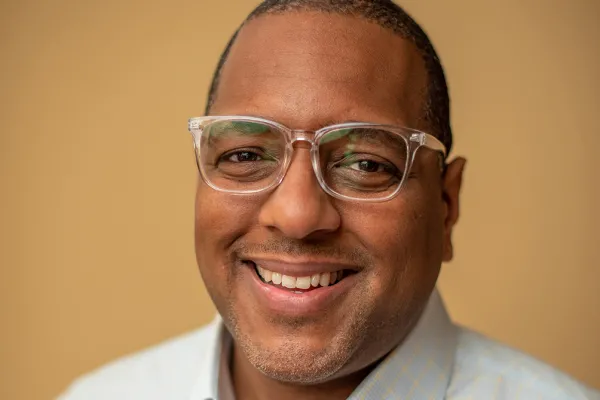Prof. Jamie Macbeth: The Potential of AI
Research & Inquiry
Published May 4, 2021
Advancements in artificial intelligence sometimes create fears that companies will try to use machines to cut costs and replace human workers. But what if AI could be used as a tool to improve human cognition and decision-making, rather than supplant it?
That’s exactly what Jamie Macbeth, assistant professor of computer science, aims to uncover through research he’ll be conducting under a prestigious grant from the Toyota Research Institute. Macbeth joins researchers from an impressive roster of institutions and universities in participating in this grant, with Smith being the sole liberal arts college on the list.
“The folks at TRI and I see AI as both a vehicle for better understanding human intelligence, and as something that we can use to enhance human capability,” says Macbeth.
Working specifically with TRI’s machine assisted cognition group, Macbeth will focus his research on mitigating peoples’ preconceived notions in decision-making situations. For example, when a group of automakers is presented with hypothetical information about how a family of four might use certain features of a vehicle, the automakers may be better informed about which vehicles to add to or remove from the market. When AI is used in these presentations, the automakers can examine scenarios they otherwise may not have considered.
Macbeth recently described the background of this grant and the work it will support.
How were you selected to receive this grant?
The chief science officer at TRI reached out to Joe O’Rourke, the chair of Smith’s computer science department at the time, who in turn got in touch with me in 2019. TRI cares about establishing relationships between the program and the researcher—while there is an application process, there is no external panel reviewing it. Instead, we got to collaborate directly with TRI on a grant proposal to fund this research.
What specific work will the grant support?
TRI’s machine assisted cognition group is largely composed of social scientists who are interested in how AI can aid human cognition and performance. We’re building a story generation system to help people mitigate their biases in complex decision-making environments. It creates narratives that are directly related to the particular situation. Someone—or a team of people—would read and consume these stories and, ideally, they would cause them to think about things differently.
This is of interest to Toyota because we’ll be using this to create stories about people and their automobiles. The idea is that, when folks at any automaker are making decisions about what vehicles to add to or take off the market, these stories will help people to think in a deeper way about how the features of a particular vehicle will be used by consumers.
What goals are you hoping to accomplish through this research?
We haven’t been able to find any examples of people using natural language story generation systems to generate stories that are interesting and varied, and using them specifically for debiasing. So our primary goals will be creating the story generation engine, and then evaluating how good the stories are—whether they are coherent and logical and whether people are responsive to them in studies with human participants.
Are there any plans for this research being used in other ways, beyond how Toyota will implement it?
The project will advance basic research into AI systems that decompose knowledge structures about social situations into language-free imagery and mental model representations. Although the purpose of the project is to build a story generation system, the results will also have wide applications in natural language understanding systems such as chatbots, personal assistants (such as Siri and Alexa) and web search. If the evaluations of the story generation system as a debiasing intervention are positive, the same kinds of interventions may be applied in other decision-making domains in the future.
What does securing this grant say about the quality and nature of the research being conducted at Smith?
Smith of course has a reputation of being a great women’s college with excellent programs in science and engineering—it has a unique position in the landscape of colleges and institutions. TRI choosing Smith also, I think, speaks to the uniqueness of the research I’m conducting. Many of the other researchers involved in the program are doing things like looking into self-driving cars and robotics systems—things you’d expect Toyota would be interested in—but I think my research is a very good match with this particular team that TRI has put together.
Will students be involved in this project?
There are a lot of opportunities for Smith students as part of this relationship with TRI. The grant will provide funding for SURF students throughout this summer and the following one, and it will also fund student research assistant positions in my lab throughout the academic year. We’re also hiring a recent graduate as a post-bac who will be working on the project full-time. There will be a lot of opportunities through TRI itself as well. They have a great summer internship program, with lots of opportunities for students—either working with me or with principal investigators on other projects.
